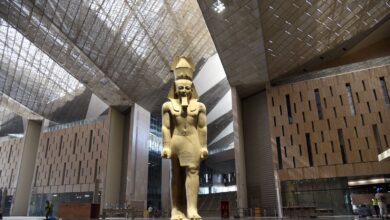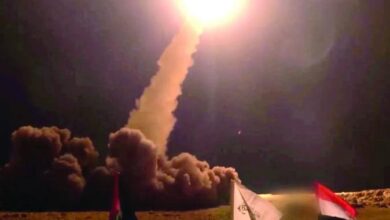Nearly a year after a US raid killed Osama bin Laden, his core Al-Qaeda network in Pakistan is "essentially gone" but its affiliates remain a threat, US intelligence officials said.
Bin Laden's death further weakened Al-Qaeda and it was unlikely the group could stage another strike on the scale of the attacks of September 11, 2001, a counterterrorism official told reporters.
"It's really hard to imagine Al-Qaeda core gathering together the resources, the training, the talent, the money to repeat a 9/11 type of attack," said the official, who spoke on condition of anonymity.
While it was "too soon to declare victory," the official said "some could argue that the organization that brought us 9/11 is essentially gone."
But "the movement certainly survives, the ideology of the global jihad survives, bin Laden's philosophy, that survives in a variety of places outside of Pakistan," the official added.
The comments were echoed later Friday by US Defense Secretary Leon Panetta, who spoke to reporters aboard a military plane on his way from Latin America, where he visited Colombia, Brazil and Chile.
"Having been involved in the operations, even before we did bin Laden, it's clear that there is no kind of silver bullet here to suddenly being able to destroy al-Qaeda, and that includes even going after bin Laden," Panetta said.
"But the way this works is that the more successful we are at taking down those who represent their spiritual and ideological leadership, the greater our ability to weaken their threat to this country and to other countries," he added.
Among Al-Qaeda's affiliates, the group's branch in Yemen posed the greatest danger to the US and has gained in strength while producing "widespread and effective" propaganda, the officials said.
Al-Qaeda's "decentralization" meant the bulk of terror attacks in the future would be carried out by the group's regional affiliates, said Robert Cardillo, deputy director of the Office of the Director of National Intelligence.
As the network evolves, there will likely be disagreement among leaders about pursuing a global campaign of attacks or focusing more on local targets where regional branches are based, Cardillo said.
He predicted a "vigorous debate about local versus global jihad within and among terrorist organizations."
The clearest evidence of the decline of Al-Qaeda's "core" was "the reduced threat of a mass-casualty attack," he said. Cardillo reiterated previous US intelligence assessments that a chemical, biological, radiological or nuclear attack on the US by Al-Qaeda was unlikely in the next year.
While the danger of an elaborate, large-scale attack had diminished, the threat of so-called "lone wolves" inspired but not directed by Al-Qaeda still present a challenge to counterterrorism efforts, officials said.
Attacks such as the shooting spree last month in France by militant gunman Mohamed Merah and a 2009 homegrown assault at Fort Hood in Texas are difficult to disrupt.
"People like Merah who act on their own, who equip themselves with weapons, who decide to act essentially on their own timing and at their own targets, are truly the most difficult targets we face," the counterterrorism official said.
Al-Qaeda has also found itself largely sidelined and wrong-footed by the popular uprisings of the Arab spring, with bin Laden and his "theology" losing popular standing in Arab states, officials said.
However, the upheaval and toppling of regimes has left a vacuum where security services had once aggressively pursued militants.
"The replacement security organs are pretty immature," the counterterrorism official said.
"That can be a relatively dangerous combination of more extremists on the street and fewer security officials to actually to watch them."
In Syria, Al-Qaeda hopes to exploit continuing violence to gain a foothold, the official said, adding that Al-Qaeda is "interested in not only affecting the result but in contributing to the fighting."
The official suggested that Al-Qaeda leaders were seeking to avoid the mass killing of civilians that marked the network's attacks in Iraq.
Apart from the affiliate in Yemen, other Al-Qaeda offshoots in Iraq, Somalia and Africa's Sahel region are more focused on local adversaries and shoring up their position, the official said.
The network's branch in the arid Sahel region of Africa, known as Al-Qaeda in the Islamic Maghreb, is seeking to take advantage of unrest in Mali after a March coup, fighting in alliance with Tuareg separatist rebels.
In Somalia, Al-Qaeda-linked Shebab insurgents have lost "a great deal of their momentum and their popularity," partly because of military defeats and their refusal to allow outside food aid into territory under their control, the official said.




